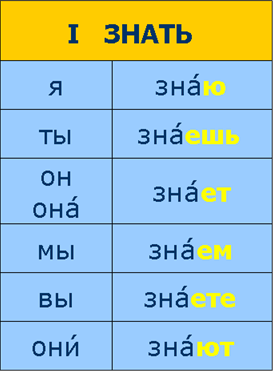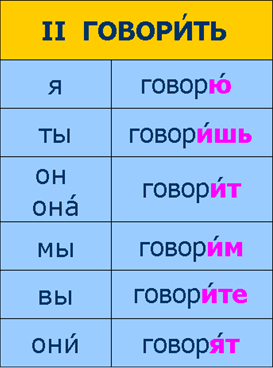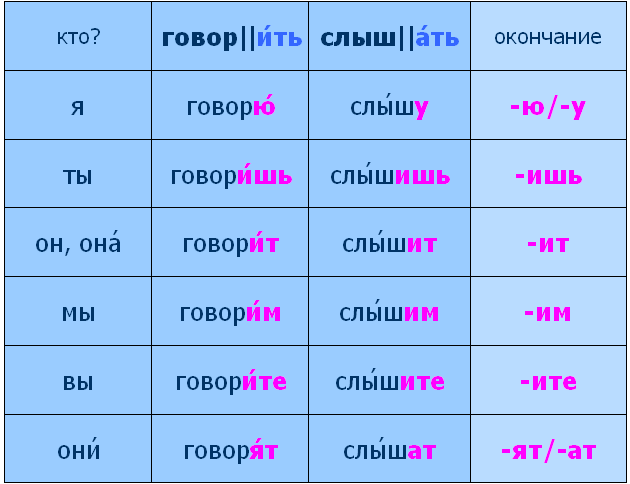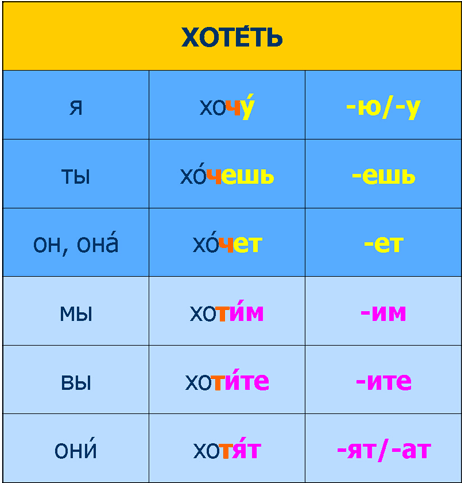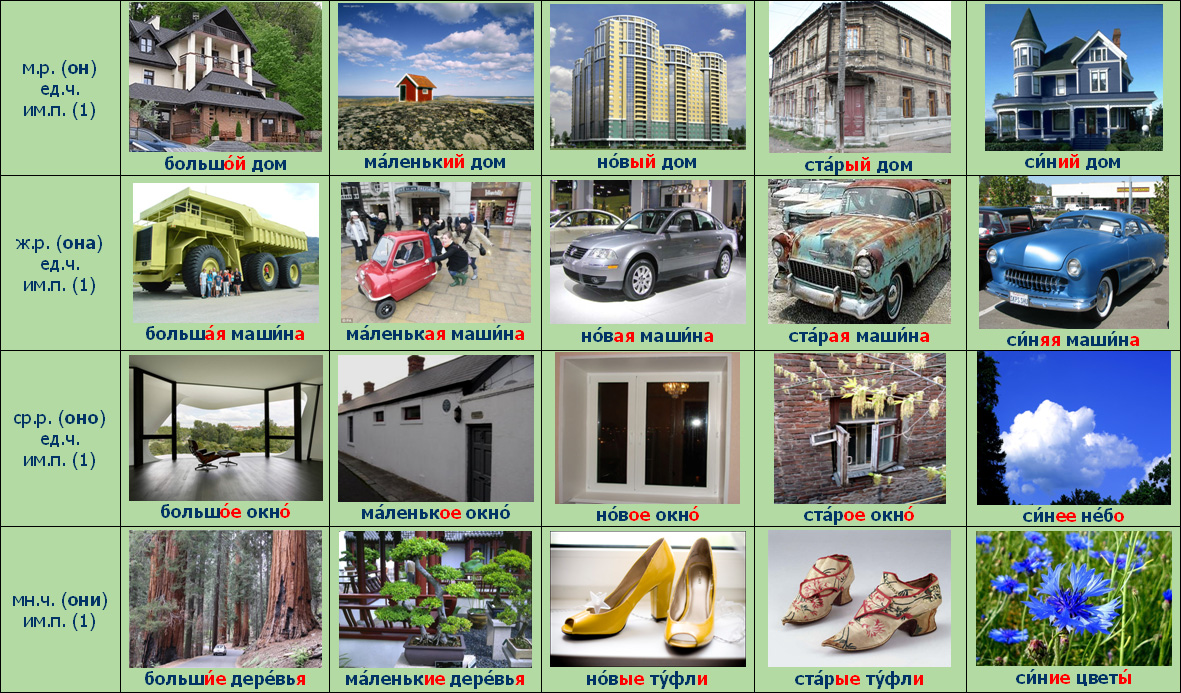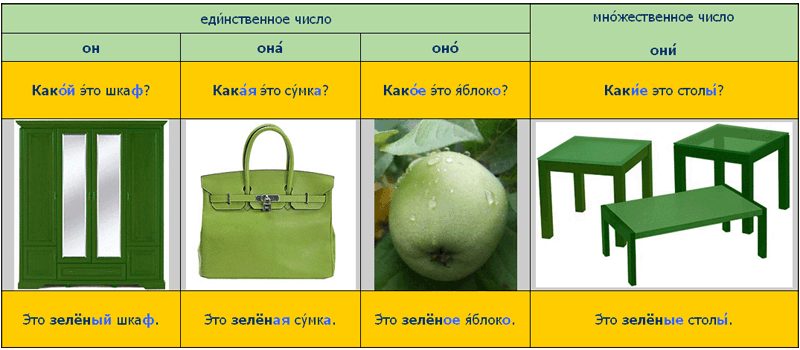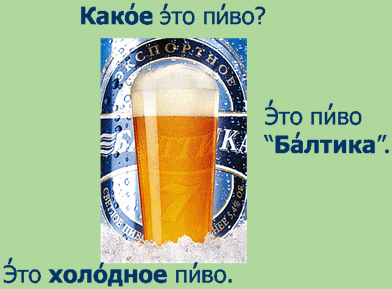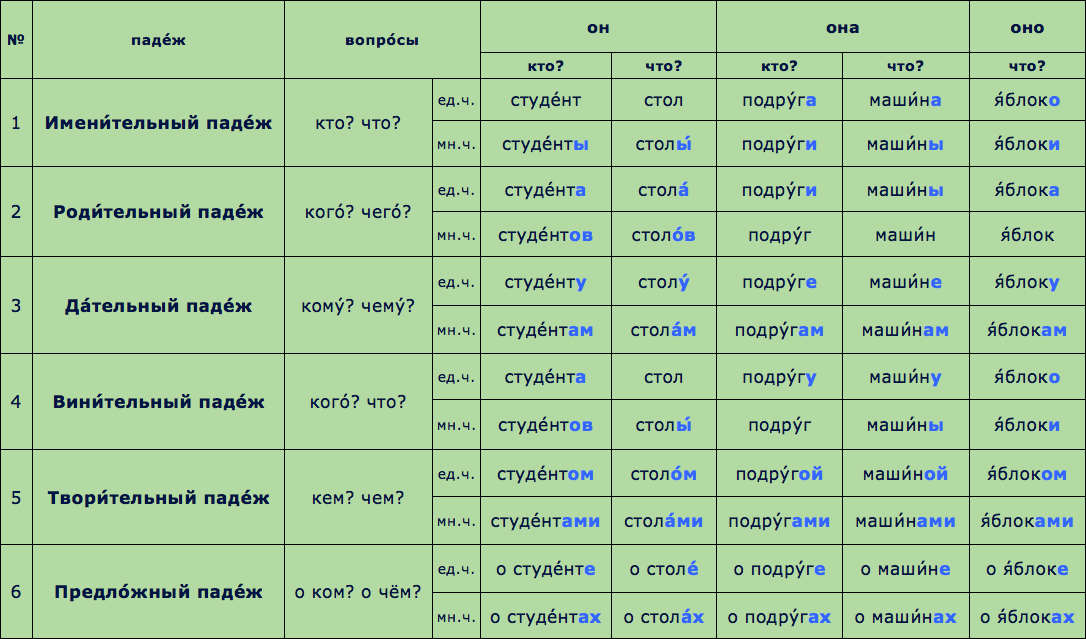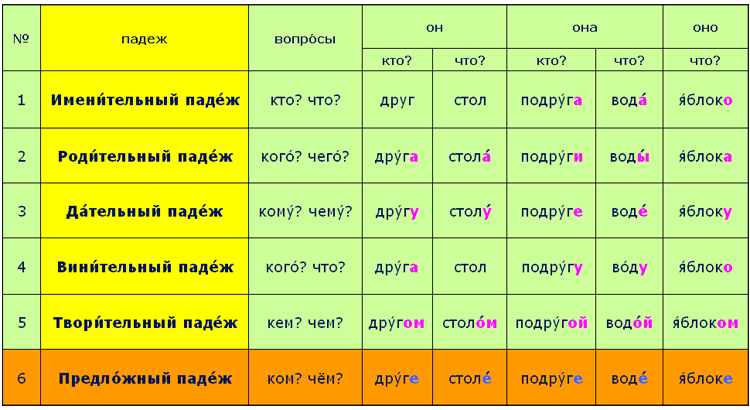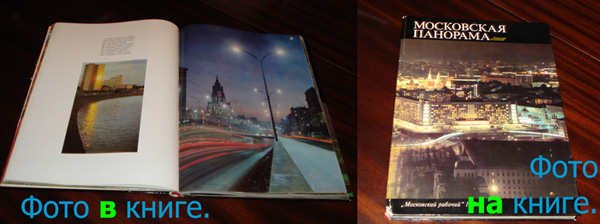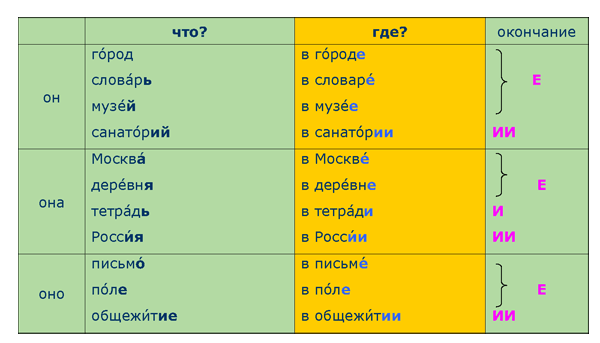

|
Grammar Notes
VERBSThe Russian Verbs conjugate (change by person and number). In a sentence, the verb form is determined by the person and number of its subject. There are two sets of verbal endings, or two Conjugation patterns.
Verbs in the Infinitive form have the following endings: -ть,-ти,-чь. The Infinitive form of the verb never changes (is invariant). This is the verbal form found in the dictionary. As a rule, if in the Infinitive form the verb ends in "-ить" (говор║ить), it is a Conjugation II verb. Verbs which in the infinitive form have all other endings are Conjugation I verbs: "знать", "гулять", "отдохнуть", "иметь", etc. Verbs in Present TenseThe Present tense is used to describe an action which:
The Present tense verbal forms are constructed as follows: Conjugation I
Conjugation II
Please, remember!
AdjectivesAdjectives are words that describe objects, i.e. indicate objects’ characteristics and attributes. The adjective answers a question: “«какой?» /”What kind?” or “Which one?” (see below). An adjective’s grammar form is always identical to that of a noun it characterizes, in other words, the adjective always has the same gender, number and case, as the noun: красивый домкрасивая девушка красивое дерево красивые цветы Pay attention to the endings of the nouns and adjectives in the table:
A Russian adjective follows either a “hard” or “soft” conjugation pattern – it means that one should pay attention to which consonant - hard or soft – precedes the adjective’s ending: e.g.in “новый” – [в] is a hard consonant, so the ending will be “- ый”, while in "синий” - [н’] is a soft consonant, thus, the ending is «ий». . The following are the “hard” conjugation pattern endings: но́вый, но́вая, но́вое, но́выеThe following are the “soft” conjugation pattern endings: си́ний, си́няя, си́нее, си́ниеHowever, it is important to remember that in a stressed position masculine adjectives that follow the “hard” conjugation pattern will end in «ОЙ» instead of «ЫЙ»: голубо́й, молодо́й и т.д.The “soft” conjugation pattern adjectives have to be memorized, as they reflect linguistic evolution. In most cases, these are nouns that end in -ний: си́ний, ле́тний, зи́мний, вчера́шний, etc. Question words: "Какой? Какая? Какое? "(what kind? which one?)When an inquiry is made about qualitative characteristics of a person or inanimate object ("what kind of a person or object is it?"), in Russian questions "какой? какая? какое? какие?" are asked. The question word usually opens the sentence, and agrees in gender and number with the noun it refers to. With the masculine noun, you will use the question word "какой?", with the feminine noun - "какая?", with the neuter noun - "какое?", and with plural nouns - "какие?".
Also, questions "какой? какая? какое? какие?" can be used to inquire about an object's name. Compare:
CASES in Russian
In Russian nouns are inflected (change). Noun forms are called "cases". There are six cases in Russian, and every case has its own meaning, function in a sentence, and its own set of endings. Cases: In a dictionary, you will find nouns in the Nominative case.
PREPOSITIONAL CASETo indicate location of a person or inanimate object, you need to use the noun in the Prepositional case form.
To indicate location, nouns in Prepositional case are always used with prepositions "в" (in) or "на" (on). If an object is located inside something, we use a preposition " в" (in): "a scarf in a bag", "a telephone in a desk drawer", "a photo in a book". And if an object is located on a top surface of something , we use a preposition "на" (on): "a scarf on a bag", "a telephone on a desk", "a photo on a book".
In Prepositional case nouns have the following endings:
Attention!In Prepositional case certain nouns end in "-у", and the ending "-у" will always be under stress. These words need to be memorized!
For further information, please, consult the Grammar Section of this course... |
||||||||||||||||||||||||||||||||||||||||


|
© 2007-2012 Center For International Education |








|
||



















